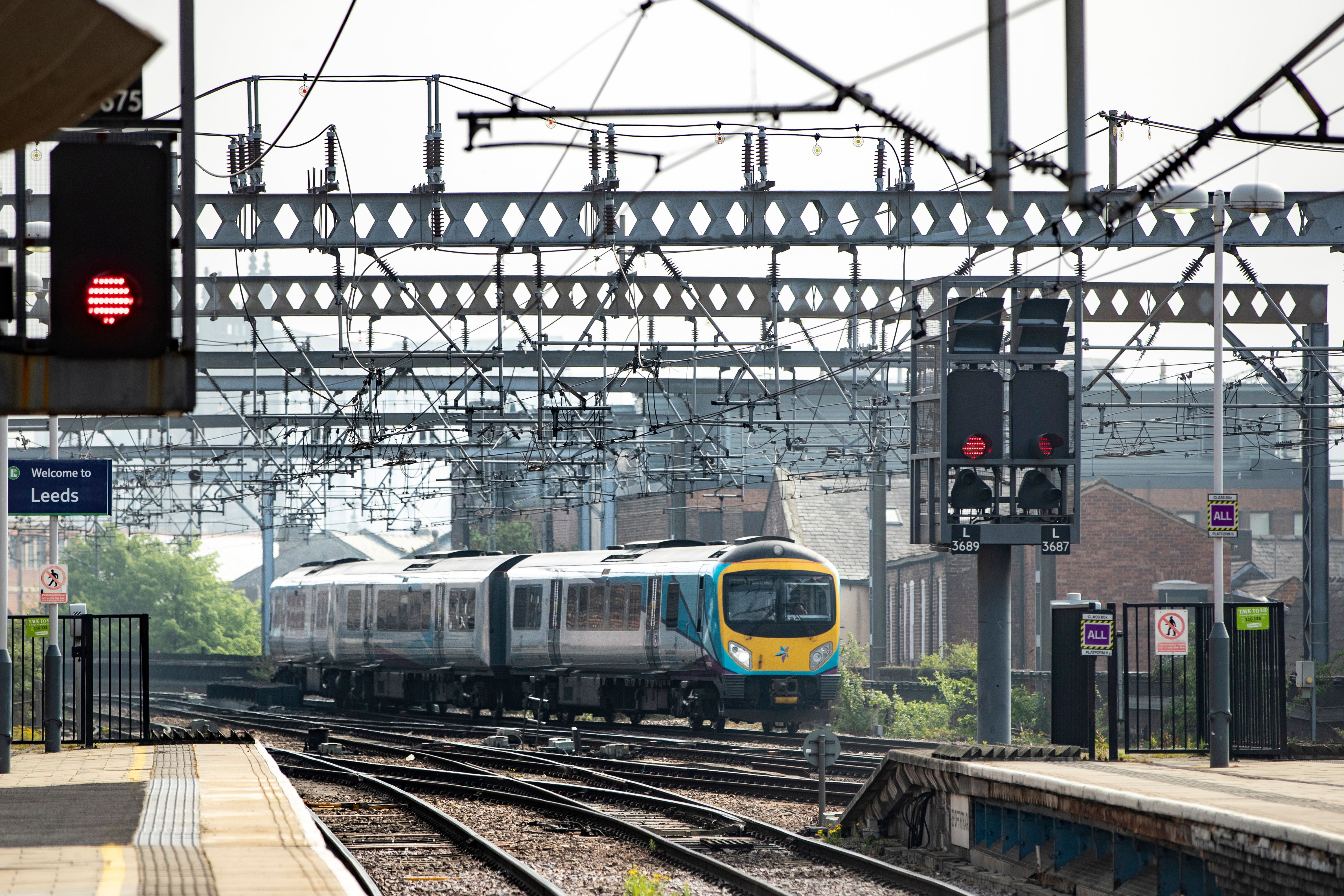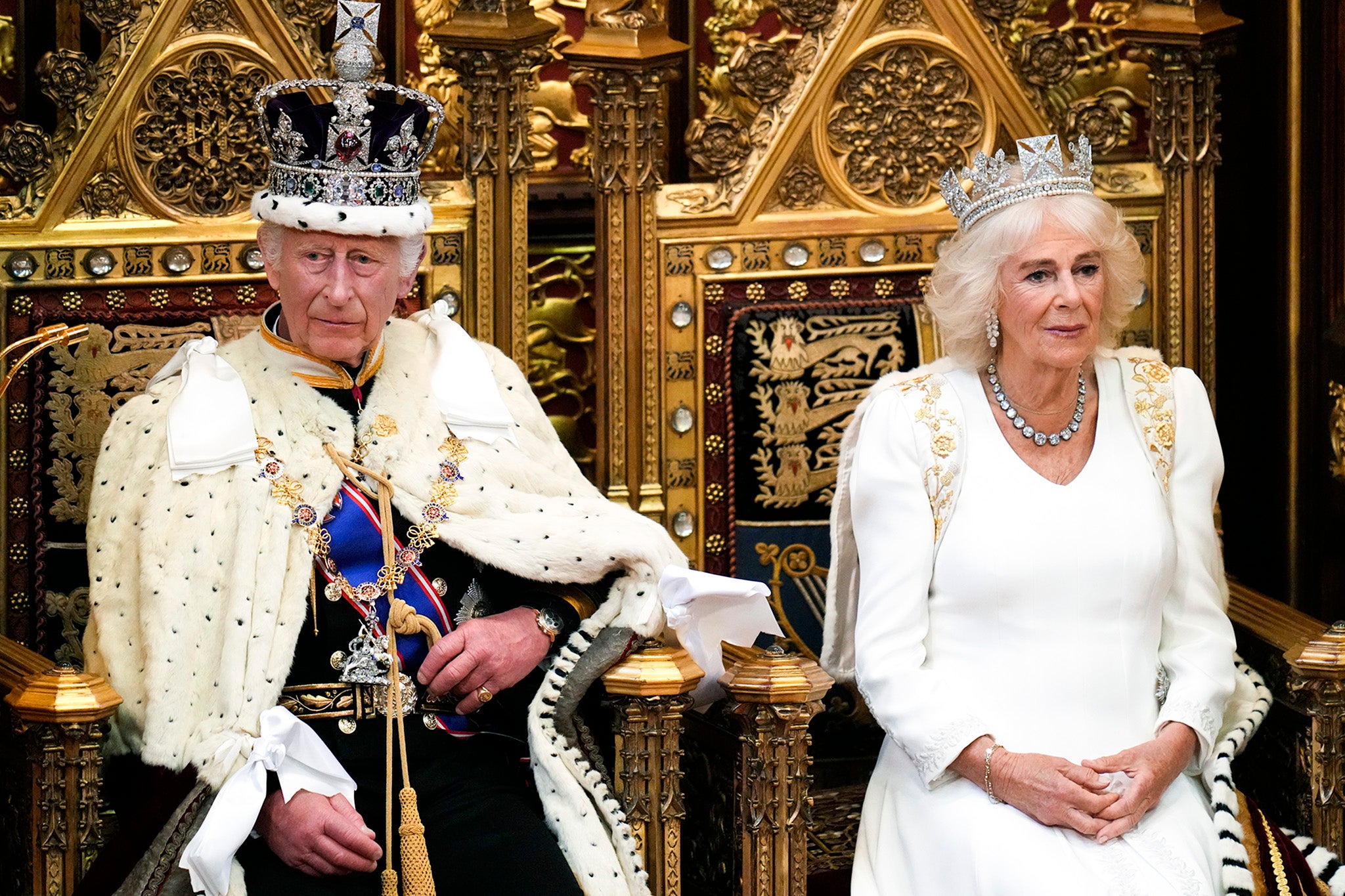How would Labour’s plan to nationalise the railways work?
Transport secretary Louise Haigh is spearheading Labour’s ambitious plans

Your support helps us to tell the story
From reproductive rights to climate change to Big Tech, The Independent is on the ground when the story is developing. Whether it's investigating the financials of Elon Musk's pro-Trump PAC or producing our latest documentary, 'The A Word', which shines a light on the American women fighting for reproductive rights, we know how important it is to parse out the facts from the messaging.
At such a critical moment in US history, we need reporters on the ground. Your donation allows us to keep sending journalists to speak to both sides of the story.
The Independent is trusted by Americans across the entire political spectrum. And unlike many other quality news outlets, we choose not to lock Americans out of our reporting and analysis with paywalls. We believe quality journalism should be available to everyone, paid for by those who can afford it.
Your support makes all the difference.King Charles made his second King’s Speech on Wednesday, and the first for a Labour government in more than 14 years. The ceremony saw him lay out the government’s plans for the coming months, with nearly 40 new bills announced.
Among them was Labour’s flagship plan to reform Britain’s railways by bringing train operators into public ownership. One of the party’s more radical measures, it will see rail services nationalised for the first time since they were privatised 31 years ago.
“Our railways are essential in ensuring reliable, affordable and accessible transport, which works for passengers and efficiently moves goods around the country,” said the government.
“Unlocking the full potential of the railways is essential to growing the economy and lowering emissions from transport.”

The move won’t happen overnight, however, as Labour said it is aiming for full nationalisation by the end of the parliamentary term in five years.
Spearheaded by new transport secretary Louise Haigh, the plan forms part of Labour’s ‘Great British Railways’ project. It aims to solve many of the issues facing the railways and train passengers, and deliver better value for money.
“Breaking British Rail into dozens of pieces was meant to foster competition between them and, together with the involvement of the private sector, was supposed to bring greater efficiency and innovation,” says Labour.
“Little of this has happened. Instead, the fragmentation of the network has made it more confusing for passengers, and more difficult and expensive to perform the essentially collaborative task of running trains on time.”
The policy has also proven popular, with a recent YouGov poll showing 76 per cent of people believe railways should be run by the public sector. Labour cites Switzerland as an inspiration, with the country having a publicly owned rail system which is often called the best in Europe.
How will Great British Railways work?
The government plans to offset the cost of the plan by folding the contracts of existing rail operators into Great British Railways over the next few years. This will happen as the contracts expire, or if they are broken by train operators who fail to deliver.
This is what happened in 2023 when TransPennine Express was taken under state control by the Conservative government. The action was taken as a last resort by Rishi Sunak’s administration after service by the operator seriously declined.
Labour’s long-term plan was chosen to avoid having to pay compensation fees out of taxpayer money to operators by ending their contracts early.
It claims issues with the railways that the Conservatives did not address are costing the taxpayer around £2.2 billion a year, with Labour saying the plans could recoup £1.5 billion.
The party says this money will go towards cutting passenger fares by an estimated 18 per cent, as well as delivering on other improvements like automatic delay and cancellation refunds, and a best-price guarantee.
Join our commenting forum
Join thought-provoking conversations, follow other Independent readers and see their replies
Comments